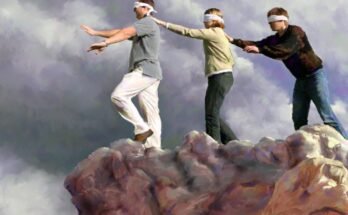Ime Ogbe , the indigenous residential district of the Onitsha kingdom, was more than just a place of residence, it was the cultural hub of our hometown; the ghetto where traditions thrived and childhood adventures flourished. It was here that we, as children, experienced the unfiltered essence of growing up in a world that balanced unrestrained freedom with the ever-present realities of discipline and consequence.
Between the ages of six and twelve, we embraced a liberty that few outside Ime Ogbe could fully understand. The mornings were often heralded by the sharp whistle of a friend, a secret signal to escape into the day’s adventure. With an unspoken pact, siblings covered for each other, ensuring the seamless execution of our little disappearances. House chores and morning routines were secondary to the call of the streets, and breakfast was often sacrificed to maintain the precious freedom of movement and association.
Footwear was an afterthought. Barefoot, we roamed, especially during the dry season, when the possibilities were endless. The grand fields of Ime Obi Onyejekwe became our playground, where we engaged in the delicate art of flying kites. With ingenuity, we fashioned our kites from old newspapers, crafting quadrilateral wings with intricate tails to harness the wind’s embrace. The challenge was not just in making the kite but ensuring it soared high above, a testament to one’s creativity and skill.
Tire rolling was another adventure that shaped our childhood. We found joy in guiding car wheels across winding paths, an activity that made running errands less of a chore and more of an incentive. There was always a reward—either in the journey itself or in the small tokens of appreciation from grateful elders.
Water bodies such as Nkisi Ogboli and the Water Works streams were among the most treasured playgrounds. The retreating rains of October deepened the waters, transforming them into irresistible sanctuaries. Ostensibly, we accompanied older siblings and neighbors to do laundry, but the real intention was to indulge in reckless, heart-thumping swimming escapades. Tragically, some of our peers lost their lives in these waters, yet the thrill of the adventure kept drawing us back, our youthful minds too fearless to heed the lessons of past tragedies.
The cultural vibrancy of Ime Ogbe was unmatched. We became uninvited but enthusiastic participants in traditional ceremonies. Funerals (Uno Onwu), title-taking festivities (Ibu Ego Ozo), and other events offered us the perfect excuse to blend into the scene. We assisted in serving elders, sneaked sips of drinks, and devoured feasts as though our homes lacked food.
These gatherings were both a social education and an opportunity to enjoy a sense of community.
Though our parents cared deeply, we were masterful liars, skilled in weaving alibis that shielded us from punishment. However, the adventure often came at a cost. Fights would break out, injuries would occur, and once home, the accumulated mischief would be repaid in full with heavy lashings, sometimes grounding us for the remainder of the holiday.
It was a cycle of freedom, fun, mischief, and consequence, a rhythm we knew all too well.
Growing up in Ime Ogbe was a double edged sword. While it was rich with adventure and cultural exposure, it also bore the risk of leading children astray. Many of our companions, those beautiful-looking boys who once played beside us, took paths that led to crime and, tragically, early deaths. The choice between good and evil was a daily test, one that not all of us passed.
For those of us who made it through, who chose responsibility over recklessness, it is nothing short of a miracle. We owe our survival not just to good parenting but to personal decisions that shaped our destinies.
Looking back, Ime Ogbe was a place of immense freedom and deep lessons, a childhood terrain where every day was an adventure and every choice a step toward who we would become.
One remembers those days with nostalgia, gratitude, and reverence for the experiences that shaped one today.
![]()






